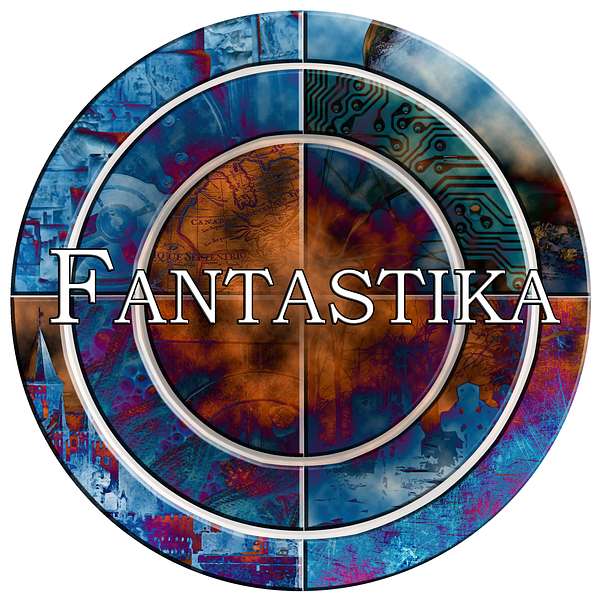
Fantastika Journal
Fantastika Journal
Ichthyology of the Closet
This podcast is part of the LGBTQIA+ Fantastika Graphics Symposium.
Join the discussion on discord (https://discord.gg/k7AagGf4v5) or on our zoom webinar on 20 Nov 2021. See fantastikajournal.com for details.
Background music by scottholmesmusic.com
Podcast by: Corey D Clawson
Ichthyology of the Closet
From Hans Christian Andersen’s “The Little Mermaid” (and its inspirations such as Undine) to modern depictions including The Shape of Water (del Toro 2017), Luca (2021), and The Girl by the Sea (Ostertag 2021), merfolx have embodied a liminal and queer narrative space. Monstrous in their hybrid appearance and nature, the fish-people inhabiting this narrative tradition contend with notions of belonging/home, desire, and a binary divide of land and sea.
This podcast, inspired by Eve Kosofsky Sedgwick’s landmark study Epistemology of the Closet, examines graphic representations of merfolx in light of the critic’s assertion that “categories presented in culture as symmetrical binary oppositions… actually subsist in a more unsettled and dynamic tacit relation” (9-10). The binary of heterosexual/homosexual that Sedgwick deconstructs stands in parallel to that of land/sea and man/animal in these stories as merfolx attend to their desires and transcend these boundaries.
Over time, this strand of queerness in literature and visual culture has been used to cope and illustrate various aspects of LGBTQ+ experiences. This podcast offers a brief, reflective historiography of how these narratives illuminate queer subjectivity from Andersen’s mermaid experiencing sensations of bleeding and burning on her enchanted legs as she walks on land in pursuit of the story’s prince to the almost nonchalant “outing” of the protagonists of Luca as they collapse the boundaries between life above and under the sea.
About the speaker: Corey D Clawson (he/him/his) is a PhD student in American Studies at Rutgers University-Newark. His main research project, Archivepelago.org, maps queer artistic influences using digital humanities methods. The project parses archival finding aids for instances of LGBTQ+ writers corresponding with one another and translating one another’s work.
Disclaimer: The information and ideas in these podcasts are the property of the speakers. Fantastika Journal operates under the Creative Commons Licence CCBY-NC. This allows for the reproduction or transcription of podcasts for non-commercial uses, only with the appropriate citation information. All rights belong to the author.
The views expressed in these podcasts do not necessarily reflect the opinions of Fantastika Journal and its editorial board.
This podcast edited by Kerry Dodd